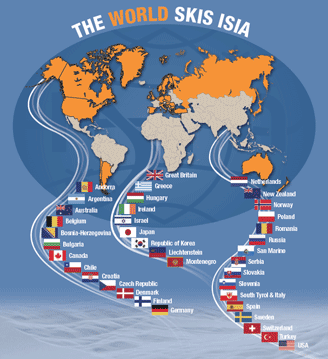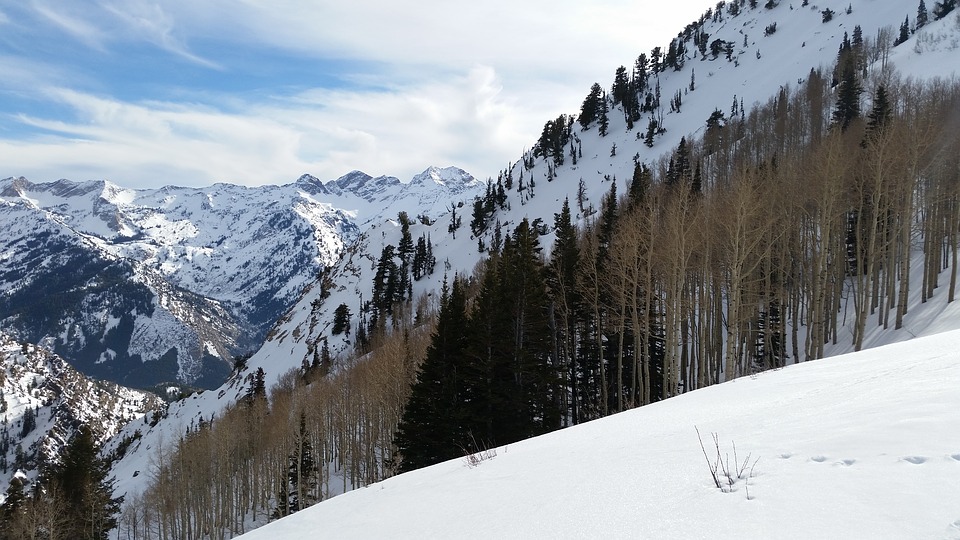Ski Instructor Qualification
Introduction
One of the most discussed and controversial topics in the world of ski instructing is regarding ski instructor qualifications.
In this section, you’ll find a general overview of how the qualification market works and what you should consider when choosing a qualification. Through our related articles, we have created a guideline of what is offered through the different ski instructors associations. In turn, helping to determine which one is right for you. Our aim here is to present the current situation as we know it, without bias.
Whilst primarily we work in the ski industry. Our background includes a wide number of other sports and education pathways. With this in mind, we will present this topic, looking at the bigger picture. Comments are welcome. We will be creating a live chat section at the bottom of this page soon.
Ski Instructor Qualification Overview
In professional sport, a variety of organizations award teaching or coaching qualifications. These organizations can be structured in different ways. Namely, associations, federations, non-profit entities or profit-based businesses being amongst the most common.
At this stage, a ‘business’ focused organization might seem like the one to avoid. Due to the fact that they have profit rather than a benefit to their members as their key focus. Whereas associations, for example, might look favourable, as they care about the interest of all their members, not just those at the top. However we believe, as a member, it’s important to note that the success of a business is not only profit based. The satisfaction of its employees and clients is also a measure of success. Similarly, being an association or federation does not automatically protect from a sway towards the personal interests of those in charge, such as economic or political benefit. Therefore not always guaranteeing benefit to the collection of members they “serve”.
Different organizations have to be affiliated with another “higher” governing body. In order to guarantee control and quality of the work delivered. The Italian Fitness Federation (FIF) for example, has to be affiliated to CONI (the Italian Olympic Committee) in order to be nationally recognized. The CONI is then part of the Italian Ministry of Sport, as well as the CIO (Comité International Olympique). Both of whom will have input on the respective organizations.
And in ski instructing?
Organizations that release qualifications, recognized them within their own country. Countries such as France and Italy for example, have their ski instructors associations ESF and AMSI respectively. Both of which are affiliated to the national olympic committee or the ministry of sport.
For the most part, the majority of ski instructor associations don’t belong to a chain of control. However many of these “country-specific” associations are recognized in other “countries” too. This means, for example, if you hold a Level 2 qualification from one organization, it can be valid for use within another nation. The new country will consider the validity of the certification in relation to their own system. Therefore they might consider you as an equivalent Level 2 or possibly of a different calibre in their country. Simply put, it’s up to the new country to decide the worth of your existing qualification.
So, is there an organization that controls everyone?
ISIA – The International Ski instructors Qualification
ISIA (International Ski Instructors Association) was funded by a few starting members in order to gather everyone around the same table. Furthermore to move existing ski instructor organizations in a collective direction. Today it holds 39 members from 39 different countries. 
Throughout its history, ISIA has set a minimum standard for international ski instructor qualification, in order for members to gain international recognition. As a result, each country in their own way, have to implement the set standards. Through doing this, their members can be trained to reach the minimum requirements. The ISIA Stamp and the ISIA Card are the two “levels” set by the international association. You can read about the minimum standard required following this link.
As you might imagine gathering many different countries under one single flag is not easy. Currently, the main associations of Italy, Austria and France, who were amongst the first to join and help fund ISIA have actually dropped out.
In spite of that, one region of Italy (Alto Adige) and many regions in Austria are actually still inside the ISIA group and accepting the ISIA Stamp and ISIA Card statuses.
To learn more about ISIA you can visit our blog section dedicated to the President and Vice Presidents Interviews. Where you can find out more about what is happening in the association directly from the people in charge of it!
In order to better regulate the market and the quality of employed ski instructors, some nations have expanded their requirements beyond the ISIA standard. These requirements being the Euro Test and Eurosecurité. These exams include a Giant slalom race and a mountain safety course. To work freely and independently in these countries, you need to complete the two exams. On top of the X amount of education hours already agreed with ISIA.
For EU members the European Union has legislated, for the first time in history, over the profession of ski instructors and their qualification equivalents.
From May 2019 all instructors must, in order to complete the education pathway, successfully pass the Common Training Test. Read our report on our dedicated article here.
Which ski instructor qualification do I require, in order to work in which country?
In theory, every association that belongs to the ISIA agreement should employ you, once you have shown an ISIA stamp or card.
However, in practice, the ski school is the employer, not countries or associations. So the decision to employ you is at their discretion.
Another point to consider is that the countries themselves have the first word. They decide who can work within their boarders and who can’t, depending on your nationality. Sometimes it’s not a question of the most recognised qualification. More, will that country permit me to work? After all, it is national governments that award work visas, not associations or schools. You can be a top level instructor, desired by a five-star school. But if the national law doesn’t grant you permission, you’re a dollar short.
After knowing your preferred country will grant you permission to work, consider the following. Firstly, the higher your ski qualification the better. Likewise, the more experience you hold, the better. Subsequently, the higher your hosting country regards your association’s qualification, the better. Lastly, the better the reputation of your association, the better.
There is a great amount of work behind the scenes amongst associations. Many make an effort to form relationships and learn about how others operate, for the benefit of all.
How do ski instructor associations gain or lose reputation?
Participation in international congresses (many organized by the ISIA). Having open, professional and friendly members. Being able to show good teaching and technical skills. Furthermore constantly trying to improve the education they offer. Consideration of aims such as these will lead associations towards gaining a strong reputation. An association needs members run. As a result, it should be there solely for their benefit. The reputation of an association should also take into consideration its members. Consequently, they should feel a level of responsibility to uphold the reputation when with colleagues and clients from different associations.
International Ski Instructor Market & Overview Conclusions
If you are a citizen of the country you would like to work in, the education pathway is simple. Pick an association that closest satisfies your home countries requirements and off you go. However, the international ski instructor market is generally very flexible and accommodating. This you will be pleased to know if you plan to travel for work. If, for any reason, you don’t believe in your own national educational system, feel free to pick another!
As a matter of fact, ski instructors have high chances of getting a job in another country without an ISIA level qualification. Due to the fact that associations talk to each other and mutual recognition is often welcome. This helps associations keep members and guarantees a workforce of instructors for all. This applies if your intention is to work amongst European countries (except France). Together with the rest of the English speaking mountains (NZ, Australia, Canada, US).
If you have a “level two” qualification from an English speaking system (APSI, NZSIA, IASI, BASI, CSIA, PSIA to mention the main ones) or an alpine country (Switzerland, Austria, Germany) you can apply to many schools in the world and with a good chance of receiving a job offer.
Of course, higher qualifications, quality training and extensive experience will aid you in getting the job in your country of choice.

The Structure of the Ski Instructor Qualification(s)
Associations set up their pathway towards top certification. This depends on the needs of the country they belong to. As well as the need of their members that want to work abroad. Find out more about how the pathways work and how the different levels have been created on this dedicated page.
Ski Instructor Qualifications Comparison
How does a certification from one association compare to another? Is a “Level 2” always the same across the world? If I could chose, how should I do so? Find out more details about each education system on this set of articles. (coming soon)
Ski Instructor Qualification Equivalents
I have a qualification from North America and I want to work in Europe. Can I do so? I have started my ski instructing career with an NZ or Australian qualification. How can I keep my education going in Europe or North America? In this article, we share some information on the current situation with qualification equivalents.
Back to our Ski Instructor Recruitment page.
Back to our Ski Instructor Courses page.
